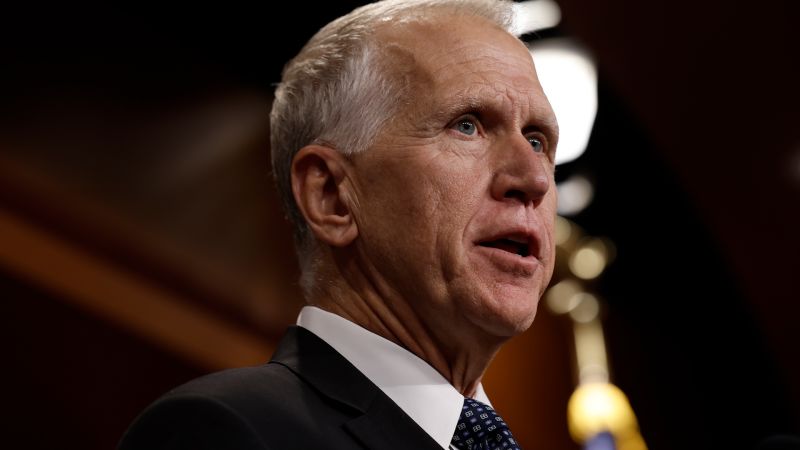Republican Lawmaker Blasts Trump's Controversial Jan. 6 Clemency Moves

Senator Thom Tillis, a Republican from North Carolina, has publicly condemned President Trump's recent moves to commute sentences and issue pardons to participants in the January 6th Capitol riot. Breaking ranks with many in his party, Tillis expressed strong disapproval of what he sees as an inappropriate attempt to absolve individuals who were involved in the violent insurrection.
The senator's criticism highlights the ongoing tension within the Republican Party regarding the events of January 6th and the aftermath of the 2020 presidential election. By speaking out against potential pardons, Tillis is signaling a clear stance that those who participated in the attack on the U.S. Capitol should be held accountable for their actions.
Tillis's comments underscore the complex political landscape surrounding the January 6th riot, where some Republicans continue to grapple with the fallout from the unprecedented assault on democratic institutions. His willingness to challenge the former president's potential clemency demonstrates a commitment to the rule of law and the principles of legal accountability.
The senator's stance is likely to resonate with those who believe that the participants in the Capitol riot should face the full consequences of their actions, regardless of political affiliations or connections.

